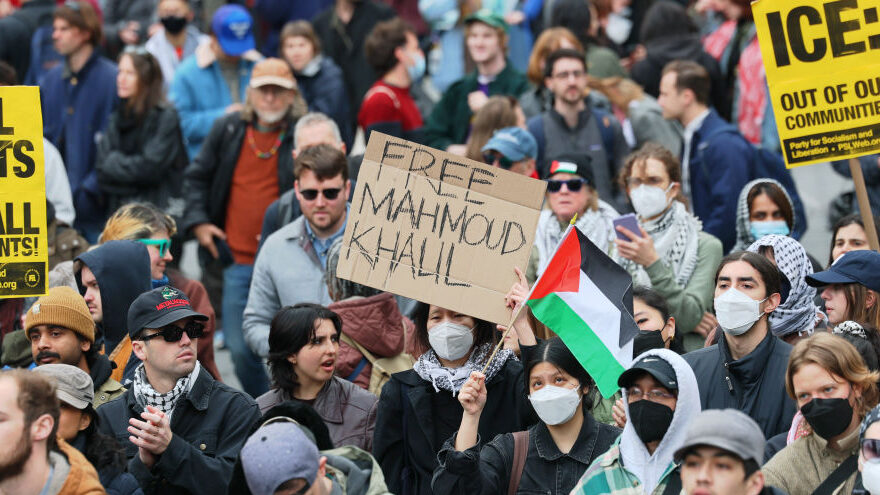Khalil Case Sparks Debate Over Free Speech and Deportation
The controversial arrest and attempted deportation of Mahmoud Khalil, a Palestinian-descended, Syrian-born green card holder, and recent Columbia University graduate, has sparked fierce debate over the limits of free speech, immigration law, and executive power. Writing for The Media Line, reporter Shira Dicker examines the legal, political, and cultural implications of Khalil’s case, which began when plainclothes ICE agents apprehended him from his university-owned Manhattan apartment on March 8—without reading him his Miranda rights and without informing his pregnant American wife of his whereabouts for over 36 hours.
Khalil, a vocal organizer of pro-Palestinian protests at Columbia, including the takeover of Hamilton Hall, is accused of distributing Hamas-aligned literature and intimidating Jewish students. While legal experts differ on whether his conduct qualifies as protected speech or crosses into the realm of “fighting words,” the government has invoked the Alien Enemies Act of 1798 to justify its actions—marking a rare and controversial use of a statute historically associated with wartime xenophobia.
Give the gift of hope
We practice what we preach:
accurate, fearless journalism. But we can't do it alone.
- On the ground in Gaza, Syria, Israel, Egypt, Pakistan, and more
- Our program trained more than 100 journalists
- Calling out fake news and reporting real facts
- On the ground in Gaza, Syria, Israel, Egypt, Pakistan, and more
- Our program trained more than 100 journalists
- Calling out fake news and reporting real facts
Join us.
Support The Media Line. Save democracy.
Critics, including constitutional scholars and Jewish community leaders, warn that the case sets a dangerous precedent. Some view Khalil as a provocateur supporting terror; others see him as a political prisoner. The case has become a proxy battle over antisemitism, protest rights, and the Trump administration’s approach to campus activism.
Dicker’s reporting details the evolving legal fight, including Judge Jesse Furman’s recent order to transfer Khalil’s case to New Jersey, which experts say improves his chances of a fair trial. With implications for free speech, immigration law, and university governance, Shira Dicker’s full report deserves close reading by anyone concerned about constitutional protections and the state of civil liberties in the US.



